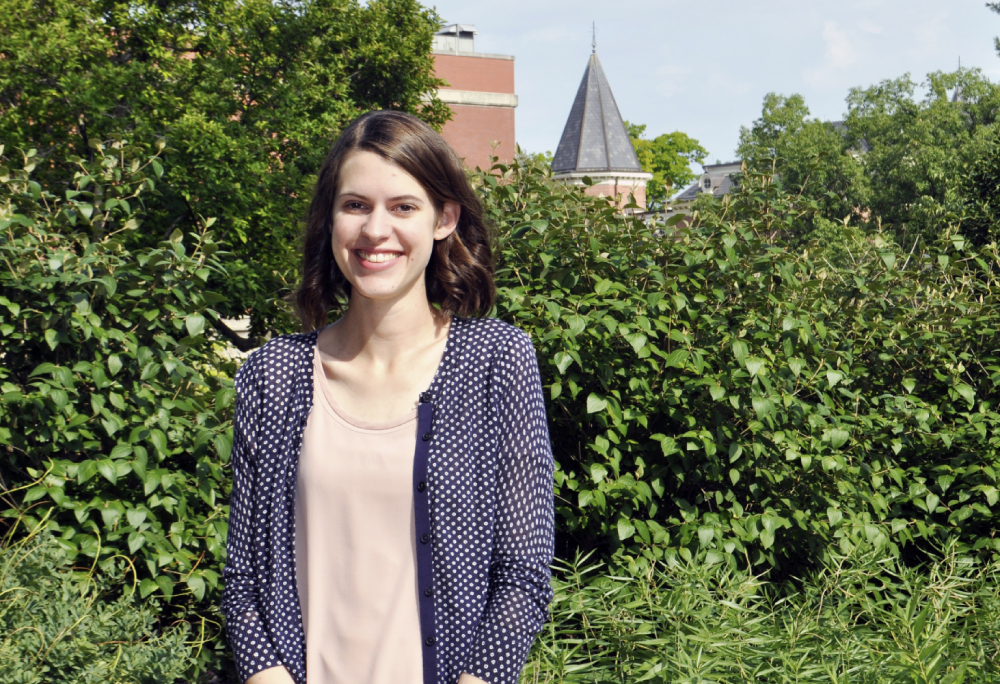Published on Oct. 10, 2018

As a freshman at Mizzou in 2010, Rachel Newman had her future mapped out. An elementary education major, Newman planned to earn her degree, become a fifth-grade teacher and eventually be an elementary school principal.
However, her time as an MU student led to a slight change in plans.
“I had an amazing undergraduate experience full of study abroad, leadership experiences and other involvement opportunities on campus,” Newman says. “I realized this was my space within education. I wanted to help students take advantage of this formative time in their lives.”
Newman shifted her focus from elementary education to higher education. She stayed at Mizzou and earned a master’s degree in higher education administration, then took a job with the Brandeis University English Language Program before returning to MU to work with the Mizzou Alumni Association. Last May, she was named assistant director of the MU Fellowships Office
Educators fill Newman’s family tree. Her grandfather was a high school principal before working in education for the State of Missouri. Her father, an MU alumnus, served on the school board in Jefferson City, Missouri, where her mother taught.
“I was inspired by them and how they have contributed to society by promoting and making education valuable for people,” Newman says.
Throughout her time at MU, Newman encountered people eager to mentor her in a variety of ways.
“I had faculty and staff who just wanted the best for me,” she says. “They wanted to see me reach my goals and encouraged me as my goals shifted. That mentoring was so influential and helped me think about what I wanted to do.”
That mentoring caused her to consider a career path in which she can support students as they chase their aspirations.
The Fellowships Office assists students in identifying and applying for nationally-competitive fellowships that enhance their education and post-baccalaureate experience. Newman’s goal in her new position is to help students understand that they have what it takes to advocate for their future goals and to encourage them to pursue those goals passionately.
“Rachel has an engaging personality, which enables her to connect especially well with students and to communicate effectively with faculty and staff,” says Tim Parshall, director of the Fellowships Office.
The fellowships process can be long and arduous. There are applications to complete, essays to write and re-write, recommendation letters to collect and interviews to ace.
Newman knows the challenges of applying for a fellowship. As a junior, she applied to be a campus nominee for the Harry S. Truman Scholarship. She didn’t receive the nomination in large part because she had not done enough in the early stages of her college career to put her in a competitive situation. While she had compiled an impressive resume of extracurricular opportunities and leadership roles, those experiences were not in line with the Truman Scholarship program to which she was applying.
It is a lesson she wants to pass on to current students so they can be better prepared.
“If I would have had a conversation with the Fellowships Office prior to my junior year, I think the experiences that I exposed myself to as an undergraduate could have looked different,” Newman says. “I could have started thinking about what are all of the options for me given my commitment to education that I hadn’t already thought about.”
That is why Newman is so enthusiastic about talking with first- or second-year students. She challenges them to identify options they want to pursue, then do everything they can to make themselves competitive for those opportunities.
“Rachel strives every day to improve herself, and in doing so, she pushes me to work harder on behalf of our students and alumni,” Parshall says.
While Parshall and Newman enjoy celebrating with students who are selected for fellowships, they recognize the value of the application process itself.
“I tell students that if you commit to this process, it is going to benefit you in some way,” Newman says. “You might not know how until you are in graduate school applying for grants or fellowships, or when you are applying for jobs, but the ability to practice self-reflection is going to be beneficial throughout your entire career because you are going to be able to advocate for yourself; you are going to be able to take charge of your own goals.”